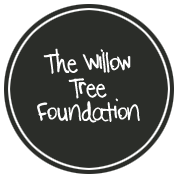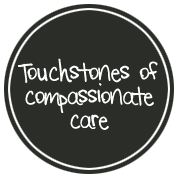At the ripe old age of eleven, I had my life planned out. I wrote these plans on a piece of paper that I still have in my possession today: “When I grow up, I want to be a doctor. I hope to also get married, have ten kids and live a happy and long life”. For as long as I can remember, I wanted to be a doctor. I couldn’t wait until I was old enough to put on the red and white striped dress of a junior volunteer. My job was primarily filling patients’ water pitchers and running specimens to the lab. Not very exciting stuff, but I was thrilled simply to get an up close and personal glimpse into the life of a doctor. I eventually traded the striped dress in for a blue jacket worn by the senior volunteers. I asked to be assigned to the emergency room - where I spent most of my weekends throughout my college years. It was an eye-opening and amazing experience. I completed my undergraduate degree in Biology, took the MCATs and applied to medical school. It is here where I encountered my first detour on the road of life that I had so perfectly planned. I was not accepted into medical school.
Over the last eight years, I’ve had the opportunity to spend a great deal of time in the presence of doctors. Unfortunately, I find myself on the wrong side of the white coat, and that is a very difficult place for me to be. After Jack was born, I was thrown into the world of intensivists, pulmonologists, neurologists, surgeons, fellows and residents. Jack spent close to five months in the PICU and during that time I encountered a legion of doctors, as the attendings and residents rotated through. I saw doctors do a lot of great things. I saw kids get new hearts and lungs and kids who were much sicker than Jack get off machines and leave that PICU. Yet, these same doctors couldn’t help me. They couldn’t “fix” my kid no matter how hard I pressed them and pleaded with them. I fought traching Jack for months because I needed answers. I needed to know “why?” The answers never came. I was worn down and eventually had to concede. From my perspective, the profession that I had so admired and aspired to belong to, had completely failed me. Jack left the PICU with a tube in his neck, a tube in his stomach and connected to a machine to support his breathing. He also left with a very terrified, confused and angry mom. I was so disappointed with doctors that I wanted nothing more to do with them … an impossibility when you have a medically fragile child.
I’ve encountered the good, the bad and the indifferent when it comes to doctors. But, by and large, I’ve had the privilege of dealing with an exceptional team of doctors who have provided the best of care to Jack. I’ve also had the opportunity to get to know several of Jack’s doctors on a more informal level. These doctors have been an incredible source of support to me by taking the time to talk me through things, by allowing me to see things from their perspective and by simply listening to me vent. One of my biggest fears the day Jack and I left the PICU was that of being abandoned by the people who – from my perspective – put me in this position in the first place. I’ve been very fortunate. I’ve not been abandoned, I’ve been embraced by several very special doctors who have done, and who continue to do, everything they can to ensure that Jack and I have the best quality of life under the circumstances.
Over the years, I’ve managed to temper my anger and disappointment towards doctors. I now have realistic expectations as to what doctors can do for Jack and what their limitations are. I’ve given up the dream of finding a doctor who can “fix” Jack. However, I still struggle with the fact that I’m on this side of the white coat and every time I sit in a room with one of Jack’s doctors, I am reminded of what I failed to accomplish. Perhaps my disappointment is not so much with the medical profession as it is with myself.
I close with the following quote from a book of companion notes for parents of children with disabilities. I believe this sums it up perfectly:
Doctors are human beings who have some information or knowledge that will help our children. Some are very skilled, and many are average. They have strengths and weaknesses. They make mistakes in their work. If we don’t put them on pedestals, we won’t have to knock them off.
Changed by a Child



















